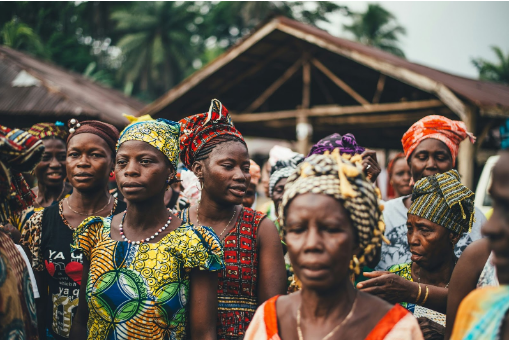
|
Getting your Trinity Audio player ready...
|
Every year on August 19, the world pauses to honour humanitarian workers who risk their lives to help others in need. It is also a solemn day of remembrance for those who have died in the line of duty, in dangerous and challenging environments.
World Humanitarian Day (WHD) was established by the United Nations General Assembly in 2009, following the 2003 bombing of the UN headquarters in Baghdad, which claimed 22 lives. Since then, the day has been dedicated to raising awareness about the importance of humanitarian work and strengthening global cooperation to address crises caused by conflict, natural disasters, pandemics, or climate change.
This year’s commemoration carries the theme “Strengthening Global Solidarity and Empowering Local Communities,” a reminder that humanitarian action works best when rooted in unity, shared responsibility, and locally driven solutions.
Alongside this global theme, here is all you need to know about the day, including the women doing the work, and how you can support them.
Women Whose Courage and Leadership Are Transforming Humanitarian Work
Across the globe, women are at the heart of humanitarian action. From doctors in war zones delivering babies under fire to local women in flood-stricken villages coordinating relief distribution, their resilience is unmatched. In Syria, South Sudan, Afghanistan, and countless other crisis areas, women aid workers have stood firm despite threats, cultural barriers, and extreme conditions.
Serving as aid workers, community leaders, medical personnel, negotiators, and peacebuilders, their efforts are life-saving and transformative for the communities they serve.
- Dr. Ameyo Stella Adadevoh, Lead Consultant Physician and Endocrinologist at a private hospital in Lagos, Nigeria, played a pivotal role in containing the 2014 Ebola outbreak. She had never seen Ebola before but was able to diagnose and contain the virus. By quarantining Nigeria’s first Ebola patient, she prevented a wider epidemic, saved countless lives, and ultimately sacrificed her own.
- Nigerian diplomat Margaret A. Vogt has led peacekeeping and conflict resolution efforts as the UN Special Representative in the Central African Republic. Dr. Joanne Liu of Canada, former International President of Médecins Sans Frontières, has directed emergency medical missions in crisis zones around the world.
- Nigerian political activist Aisha Yesufu co-founded the Bring Back Our Girls movement, championing the rights of kidnapped schoolgirls and displaced persons. Over the years, she has become a prominent voice in activism, inspiring many to speak out against injustice. She is known for her fearless advocacy on social justice issues, including governance, accountability, and gender equality.
- Dr. Zainab Bagudu, founder of the Medicaid Cancer Foundation, provides medical outreach to vulnerable populations. MCF also drives important advocacy efforts, contributes to national and state-level cancer control plans, and conducts impactful initiatives like the “WalkAway Cancer” awareness walk. It also partners with local and international organisations to improve access to quality healthcare for underserved communities.
- Bisi Fayemi works to empower women and support survivors of gender-based violence. She co-founded the African Women’s Development Fund, providing grants and resources to African women’s rights organisations. She also founded the EDF in 2011, which focuses on economic empowerment, health, leadership development, and support for vulnerable women and children within the state
Challenges Faced by Women Humanitarians
While women play an important role in humanitarian work, they are also faced with unique challenges that limit their safety, growth, and ability to influence decisions. These barriers affect not only their professional progress but also the quality and reach of humanitarian efforts.
- Risk of Gender-Based Violence: Women working in dangerous areas face a higher risk of sexual harassment, assault, or exploitation. This can happen both in the field and within their workplaces, making their jobs even harder.
- Few in Leadership Positions: Even though many women work on the frontlines, few are promoted to top decision-making roles within humanitarian organisations. Gender bias and lack of support often stop them from moving up. This lack of representation means that women’s perspectives and community-informed approaches are not always reflected in high-level strategies or funding priorities.
- Cultural Restrictions: In certain regions, cultural norms and discriminatory practices can restrict women’s ability to travel freely, speak publicly, or engage directly with communities. Such restrictions can also make it harder for women to access training, resources, and networks critical for humanitarian impact.
How to Support Women in Celebrating Humanitarian Day
One of the best ways to celebrate World Humanitarian Day is by lifting the work of women who dedicate their lives to helping others at great personal risk. Here are other ways you can contribute:
- Raise Awareness: Share the stories of humanitarians, past and present, by highlighting their courage, resilience, and impact. Whether through social media, events, or discussions, spreading these stories inspires others and ensures their contributions are not forgotten.
- Fund Women-Led Initiatives: Many women-run organisations and grassroots groups provide life-saving aid to vulnerable communities. These initiatives are deeply connected to the people they serve and deliver effective solutions. Donating or helping them access funding can expand their reach and impact. You can also support Naija Feminists Media’s work to advance gender equality and amplify women’s voices in the media here.
- Advocate for Gender Equality in Aid Work: Support policies and practices that make humanitarian work safer and fairer for women. This includes pushing for equal pay, stronger protections against harassment, more women in leadership roles, and working environments that value their expertise and perspectives.
On World Humanitarian Day, as the world unites in gratitude, we honour these women and all humanitarian workers whose sacrifices and service keep hope alive in the darkest times. Their efforts remind us that empowering women in humanitarian work strengthens entire communities.






